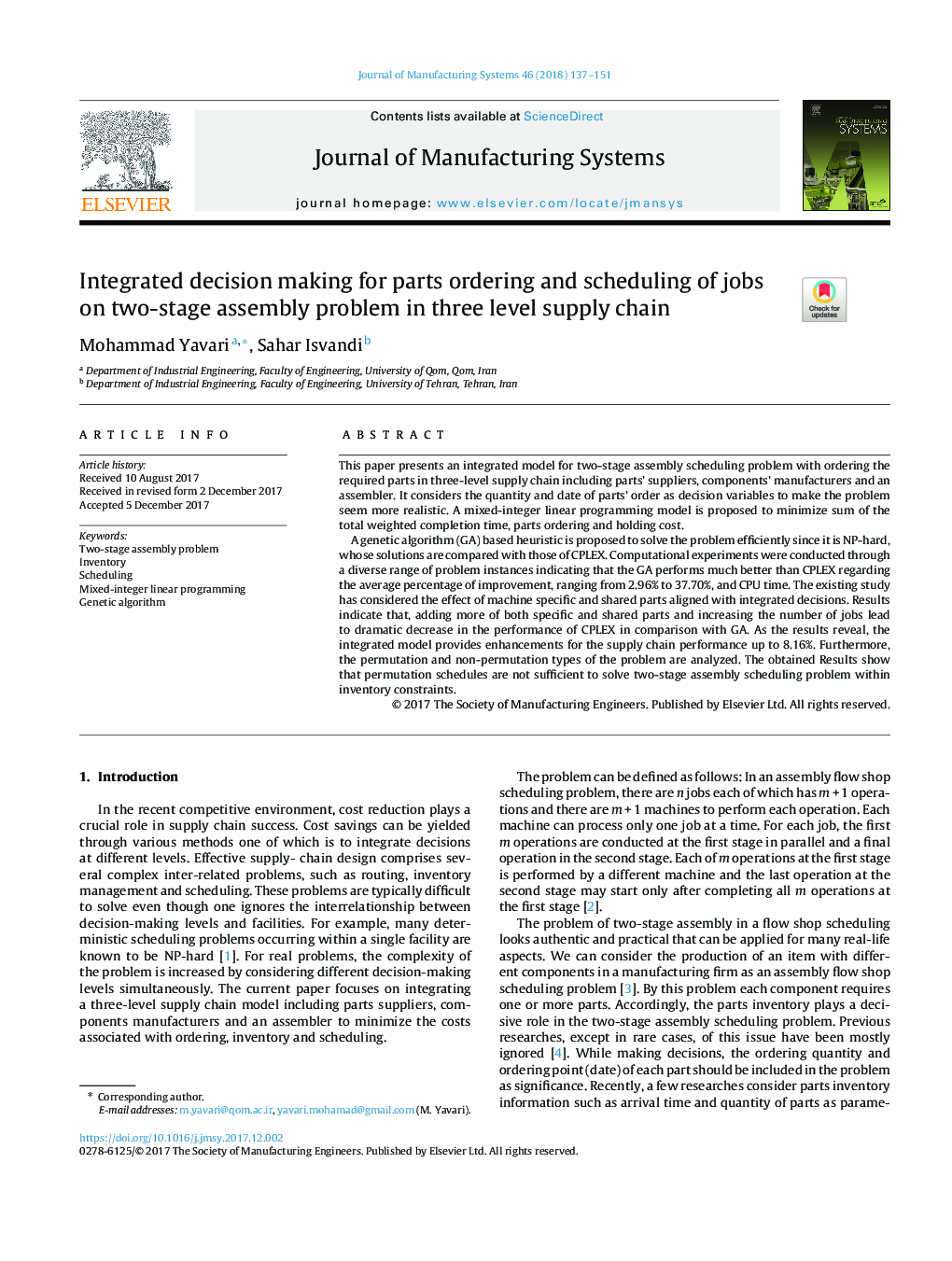| Article ID | Journal | Published Year | Pages | File Type |
|---|---|---|---|---|
| 8048350 | Journal of Manufacturing Systems | 2018 | 15 Pages |
Abstract
A genetic algorithm (GA) based heuristic is proposed to solve the problem efficiently since it is NP-hard, whose solutions are compared with those of CPLEX. Computational experiments were conducted through a diverse range of problem instances indicating that the GA performs much better than CPLEX regarding the average percentage of improvement, ranging from 2.96% to 37.70%, and CPU time. The existing study has considered the effect of machine specific and shared parts aligned with integrated decisions. Results indicate that, adding more of both specific and shared parts and increasing the number of jobs lead to dramatic decrease in the performance of CPLEX in comparison with GA. As the results reveal, the integrated model provides enhancements for the supply chain performance up to 8.16%. Furthermore, the permutation and non-permutation types of the problem are analyzed. The obtained Results show that permutation schedules are not sufficient to solve two-stage assembly scheduling problem within inventory constraints.
Related Topics
Physical Sciences and Engineering
Engineering
Control and Systems Engineering
Authors
Mohammad Yavari, Sahar Isvandi,
